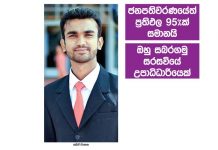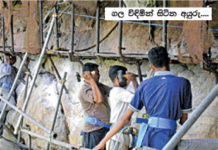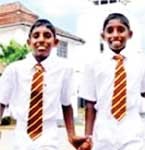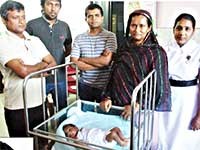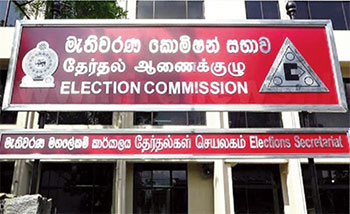By Neville Ladduwahetty
A report, titled “Polls Chief needs 35 days to prepare for election,” quotes the Chairman of the Election Commission as having stated: “If we are to hold an election on June 20, we need to start at least by May 15. That means the country should return to normal by that time. We must listen to health officials and also take into account how our officers feel. There should be an environment conducive to election work.” (The Island, May 2, 2020).
It is not clear whether “the country should return to normal, by May 15, or June 20. However, a question arises as to who, and what parameters and benchmarks, determine that the country has returned to “normal.” Does the Election Commission, and its staff, determine this, or does the health establishment, separately, or jointly, with the Election Commission, determine what is “normal”? Whatever the case may be, such vague and ambiguous statements add to the apprehensions among the voting public.
Since the crisis in the country is health-related, it is the authorities responsible for the overall health and safety of the public that should take the lead in establishing what is “normal”, and not the Election Commission.
The health authorities should determine the following:
1. Whether the election should be conducted, island-wide, on a single day or staggered, over several days.
2. The guidelines to ensure safety at every polling station.
It is after securing such advice that the Election Commission should gear itself to conduct “free and fair elections,” as mandated by the Constitution. What is disappointing is the inability of the health authorities to take the lead role in establishing the guidelines needed to hold free and fair election/elections to ensure the safety of the voter.
MANDATE of the ELECTION COMMISSION
The mandate of the Election Commission is incorporated in Chapter XIV A of the Constitution and in the Parliament Election Act No. 1 of 1981. Article 103(2) of the constitution states: “the object of the Commission shall be to conduct free and fair elections and referenda”. Furthermore, the Constitution empowers the Election Commission to prevail on other resources, such as the Police, to request the services of the Armed Forces, if needed, and the cooperation of State Agencies, in the fulfillment of its mandate.
According to Section 10 of the Parliament Election Act No. 1 of 1981, it is the President that sets the dates, calling for nominations, the date for the poll, and the date for summoning the new Parliament when he dissolves Parliament. On the other hand, Section 24(3) empowers the Election Commission to set date or dates ONLY for those District or Districts that experience “unforeseen circumstances”. However, under NO circumstances is the Election Commission empowered to set a date for a national poll. If it did, the Election Commission would be in conflict with the powers assigned to the President, under Section 10, cited above. These are the principles which the respective parties should follow, if constitutional provisions and Acts of Parliament are NOT to be violated.
In addition to the principles, cited above, there is a constitutional requirement that the Election Commission advises the President to create “proper conditions” to conduct free and fair elections, as provided by Article 33(1) (d) of the 19th Amendment. Article 33(1) (d) states: “On the advice of the Election Commission, to ensure the creation of proper conditions for the conduct of free and fair elections and referenda.”
Considering that it is only with Presidential intervention that “proper conditions” could be created to conduct a free and fair poll, in the background of a global pandemic, it is in the interest of the Election Commission to take the initiative to offer the needed advice to ensure free and fair elections. Hopefully, the Election Commission has fulfilled this constitutional obligation. If not, it is a cause to hold the Election Commission accountable. Furthermore, this omission could have the potential to even compromise franchise, which is a vital component of the Sovereignty of the People.
It is evident, from the foregoing, that the Election Commission may have not only exceeded its powers, under the Election Act, when it set June 20 for a national poll, but also failed to fulfill its obligations, under provisions of the Constitution, to offer advice to the President. In addition, by fixing the poll, to be held on June 20, by Proclamation, dated March 20, the Election Commission has exceeded the three-month limit for the country to function without a Parliament. This violates the Constitution. Thus, the Election Commission has violated the Election Act, failed to fulfill its constitutional obligations and violated the constitution, all of which collectively impact on the franchise of the People. It is only judicial intervention that could address these digressions.
OTHER MANDATES
The Presidential Proclamation of March 2, that dissolved Parliament, announced April 25 as the date set for the poll. On March 21, the Election Commission announced that a poll could not be held on April 25 due to the COVID-19 outbreak. Even though the reason attributed for not holding the poll was a national health issue, the President’s Office should have sought the advice of the Election Commission, under provisions of Article 33(1)(d) of the Constitution, to explore strategies to hold a poll on April 25, notwithstanding the challenges arising from the COVID-19 outbreak. Instead, the President’s Office informed the Election Commission to set another date, under provisions of Section 24(3) of the Parliament Election Act.
This directive was to grant the Election Commission powers that were intended to be used ONLY in the event “unforeseen circumstances” existed, in any District or Districts. However, Section 24(3) was certainly not meant, or intended, to be used to set a date for an “islandwide national poll.” Therefore, for the Election Commission to set a date for a national poll, under provisions of Section 24(3), is a violation of the Election Act. Furthermore, since it is only the President who is authorised to set the date for a national poll, as per Section 10 of the Election Act, to suggest that the Election Commissions should undertake such a responsibility was to expect the Election Commission to fulfill functions beyond its mandate.
Such bureaucratic misadventures arise because of a perception that once a Presidential Proclamation is issued, there is no need for any other State Agency to be associated with the activities of a national poll. This misconception ignores the role and purpose of Article 33(1) (d) despite the fact that it is cited as part of the duties of the President. What needs to be appreciated is that this Article enables the Election Commission to ensure a free and fair election, and, more importantly, the President to have a new Parliament with which the Executive could forge an alliance to give a new direction to Sri Lanka.
GROUND REALITIES
The reality is that all concerned have unquestioningly accepted the date of June 20, 2020, set by the Election Commission as the date to elect Members to a new Parliament. Such acceptance has the following implications:
1. Nominations called by Proclamation of 2nd March could lapse.
2. There could be a need to call for fresh nominations
3. The new Parliament would be summoned by the President under provisions of Article 33(2)(c)
4. The country would then be without a Parliament for over three months.
5. Reliance on the above Article to summon the new Parliament could be challenged in Court and rejected on grounds that this Article is a general provision and the specifics are in Article 70. Such misdirected confidence ignores history when Parliament was dissolved in November 2018.
CONCLUSIONS
COVID-19 has affected the lives and politics, not only in Sri Lanka, but also globally. Against such a background, for the Chairman of the Election Commission to issue vague statements that elections would be held when the country returns to “normal”, is being irresponsible since he has to accept that he does not have the competence to determine what “normal” entails. These determinations should be left to the medical authorities. Furthermore, it should be the medical authorities that should determine whether an islandwide election, or a staggered election, would be safer from a health perspective. In either case, it is incumbent upon the medical authorities to recommend the precautions that should be taken, at each polling station, without leaving it to the discretion of the Election Commission.
The Proclamation, announcing the dissolution of Parliament, was on 2nd March. The first victim of COVID-19 was detected on 11th March. The Election Commission announced on 20th March that a poll could not be held on April 25. This gives the Commission 32 days (not 35 days he now wants) to conduct a poll with the advice of the health authorities.
The bureaucratic bungling that various State agencies have engaged in, since Parliament was dissolved, by Presidential Proclamation, on March 2, has precipitated a constitutional crisis. This bungling has resulted in compromising and/or violating provisions in the Constitution and in the Parliament Election Act No. 1 of 1981. What state agencies collectively failed to realise is that Article 33(1)(d) provides opportunities not only for the Election Commission to advise the President the “proper conditions” that should be created to conduct a free and fair election, but also for the President to have a new Parliament with which to forge a new direction for Sri Lanka.
Considering the unprecedented challenges Sri Lanka has had to face and will continue to face for some time, the only redeeming feature is the exemplary measures adopted by the government to overcome the threat from the COVID-19 outbreak. The hope is that the government will be as astute in handling the political challenges with equal courage and fortitude.
Ths Island


